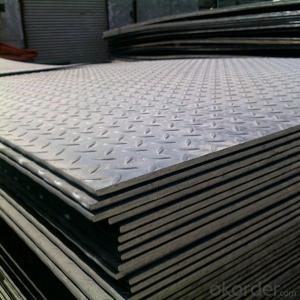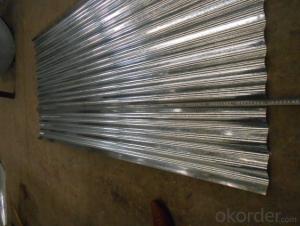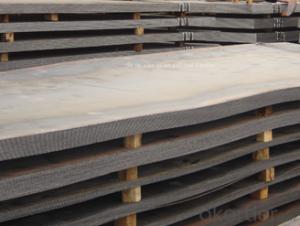Hot Rolled Steel Plate Mild Steel Chequered Plate
- Loading Port:
- China main port
- Payment Terms:
- TT OR LC
- Min Order Qty:
- 23 m.t.
- Supply Capability:
- 10000 m.t./month
OKorder Service Pledge
OKorder Financial Service
You Might Also Like
Item specifice
Hot rolled steel plate mild steel chequered plate
Our main procucts are steel billet,steel plate,steel roll coil,steel wire rod,steel bar,etc.Moreover,our hot rolled coil and ship building plate are certificated respectively by CARES,CE from Eurpoean Union and CCS authentication from nine nations.Our products are widely used in variety areas,such as millitary,aerospace,transportation,equipment manufacturing,shipping,petroleum pipe line,buildings,etc.
Product Description
| Item Name | Boiler steel plate(pressure vessel steel plate) | |||||||
| Standard | ASTM515/516,EN10028-2,GB713,GB3531 | |||||||
| Certification | ISO9001 | |||||||
| Dimension | Thickness:6mm-50mm,as customer's requirement | |||||||
| Width:1700mm-3200mm,as customer's requirement | ||||||||
| Length:3000mm-13000mm,as customer's requirement | ||||||||
| Surface | Clean,blasting and painting according to customer requirement | |||||||
| Application | It is widely used in Container,Boiler,Construction,etc | |||||||
Product Picture
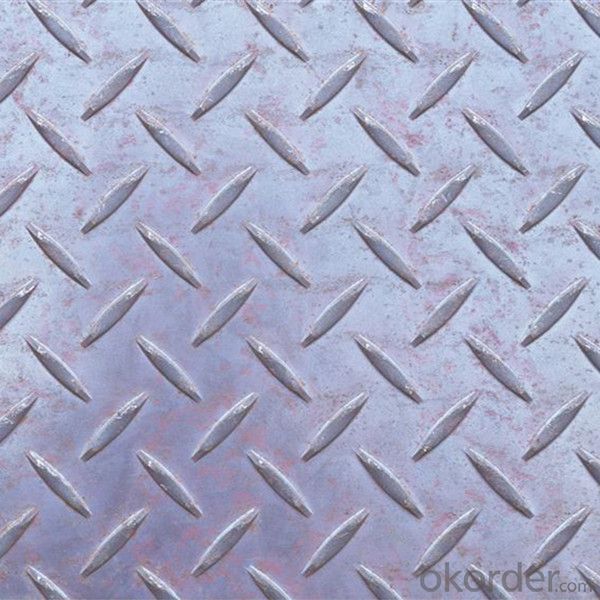
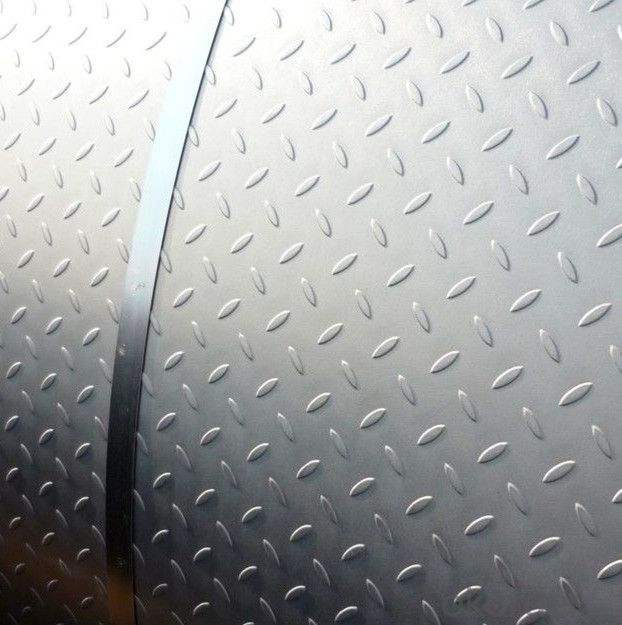
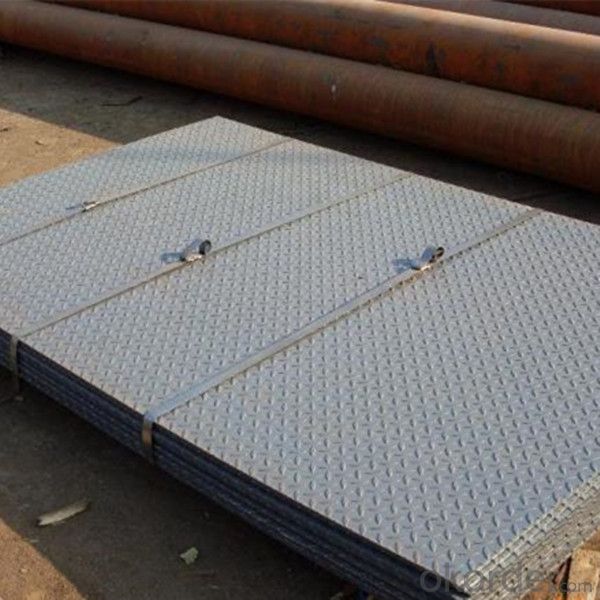
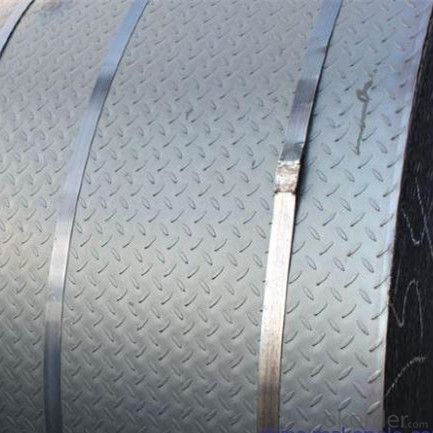
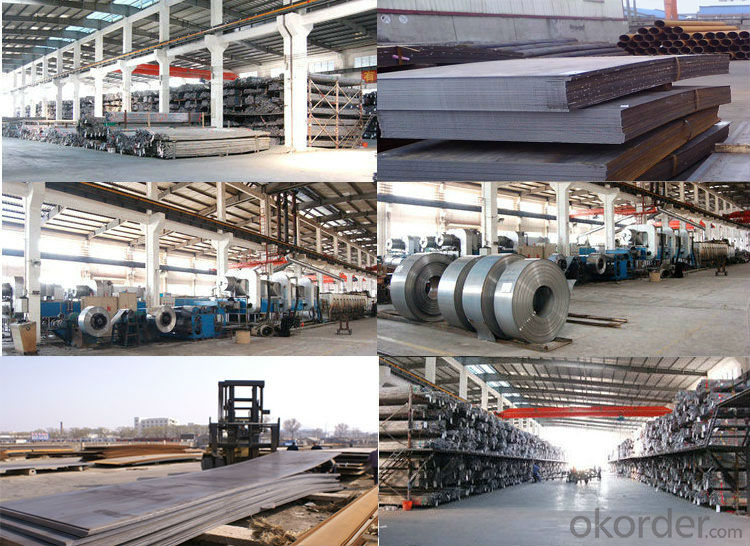
FAQ
1.Q:You are Factory or Trading Company?
A:We are factory,our main products include Steel plate,Steel Bar,Steel coils.
2.Q:What’s the MOQ?
A:Generally,the trail order will be accepted.The MOQ can be confirmed according to the different products.For example,the MOQ of rebar will be 25-50MT,the galvanized steel pipe will be 10MT,the stainless steel pipe will 1-5MT.
3.Q:Do you have OEM service?
A: Yes.Variety of products size,quality and quantity can be customized according to your need.
4.Q:Could you support free sample?
A:Yes.We can supply FREE samples.But the delivery charges will be covered by our customers.
5.Q:How about the delivery time?
A:Within 15-30days after receiving the deposit or L/C at sight.
6.Q:How about the trade terms?
A:EXW,FOB,CFR,CIF will be accepted.
7.Q:How about your payment terms?
A:30%TT in advance and the balance against of copy of B/L.
The irrevocable L/C at sight will be accepted.
- Q:Are steel sheets suitable for HVAC ductwork?
- Yes, steel sheets are suitable for HVAC ductwork. Steel is a durable and strong material that can withstand the pressure and temperature changes associated with HVAC systems. It is also resistant to corrosion and leakage, making it an ideal choice for ductwork applications. Additionally, steel sheets can be easily fabricated and installed, ensuring a reliable and efficient HVAC system.
- Q:How is the quality of steel sheets determined?
- The quality of steel sheets is determined by various factors such as the composition of the steel, its mechanical properties, surface finish, and dimensional accuracy. It undergoes rigorous testing for strength, ductility, hardness, and resistance to corrosion. Additionally, the manufacturing process, including the selection of raw materials and adherence to industry standards, plays a significant role in determining the quality of steel sheets.
- Q:How do steel sheets compare to plastic sheets?
- Steel sheets are generally stronger, more durable, and have a higher heat resistance compared to plastic sheets. They are better suited for heavy-duty applications, such as construction and industrial uses, where strength and durability are crucial. Plastic sheets, on the other hand, are lightweight, flexible, and cost-effective. They are commonly used for applications where weight and cost are important factors, such as packaging, signage, and some consumer goods. Ultimately, the choice between steel and plastic sheets depends on the specific requirements and intended use of the sheets.
- Q:Can steel sheets be used in the energy sector?
- The energy sector can indeed make use of steel sheets. Steel, being a versatile material, offers numerous advantages for different applications in the energy industry. It finds common usage in the construction of power plants, transmission towers, and infrastructure for renewable energy sources like wind turbines and solar panels. Power plants employ steel sheets in fabricating boilers, turbines, and other components. Steel's high strength and durability make it suitable for withstanding the high temperatures and pressures involved in power generation processes. It also possesses resistance to corrosion and erosion, ensuring the longevity of critical equipment. Transmission towers and substations also rely on steel sheets for their construction. These structures support power transmission lines and aid in the efficient flow of electricity across long distances. Steel's robust mechanical properties make it an ideal choice for such applications, as it can withstand the weight and stresses imposed by power transmission infrastructure. Moreover, steel sheets play a vital role in the manufacturing of wind turbines and solar panels. In wind turbines, steel is used for the tower structure, which must possess sufficient strength to support the rotor's weight and endure the wind forces. Additionally, steel sheets are utilized in constructing solar panel frames, providing stability and rigidity to the photovoltaic modules. All in all, steel sheets are extensively utilized in the energy sector due to their strength, durability, and resistance to various environmental factors. The versatility of steel makes it a dependable choice for a wide range of applications, contributing to the generation and transmission of energy from both conventional and renewable sources.
- Q:What are the different strength properties of steel sheets?
- The different strength properties of steel sheets include tensile strength, yield strength, and elongation. Tensile strength refers to the maximum amount of stress a steel sheet can withstand before breaking, while yield strength is the maximum stress that can be applied without causing permanent deformation. Elongation measures the ability of a steel sheet to stretch or elongate before it fractures. These properties are important factors to consider when determining the suitability of steel sheets for various applications.
- Q:Are steel sheets prone to rusting?
- Yes, steel sheets are prone to rusting when they are exposed to moisture and oxygen for extended periods of time.
- Q:Do the steel sheets have any specific fire ratings?
- Yes, steel sheets often have specific fire ratings due to their inherent fire-resistant properties. These ratings indicate the duration of time the steel sheet can withstand exposure to fire before it loses its structural integrity. The fire ratings are determined through rigorous testing and certification processes.
- Q:Can steel sheets be used for decorative architectural elements?
- Yes, steel sheets can be used for decorative architectural elements. They offer a sleek and modern aesthetic, and their durability makes them suitable for both interior and exterior applications. Steel sheets can be customized with various finishes, textures, and patterns to add visual interest to architectural designs.
- Q:Can steel sheets withstand extreme temperatures?
- Yes, steel sheets can withstand extreme temperatures. Steel is known for its high melting point, which is around 1370°C (2500°F). This makes it suitable for use in environments with extreme heat, such as furnaces, kilns, and industrial ovens. Additionally, steel has excellent thermal conductivity, allowing it to efficiently transfer heat and resist thermal expansion and contraction. These properties make steel sheets resistant to warping, cracking, and other forms of structural damage that can occur under extreme temperature conditions.
- Q:What is the average fire rating for steel sheets?
- The fire rating of steel sheets can differ based on different factors, including sheet thickness, steel type, and fire testing standards. Generally, steel sheets have fire ratings between 30 minutes and 2 hours. However, it's worth noting that fire ratings can be improved by adding fire-resistant materials or applying fire-resistant coatings to the sheets. To determine the precise fire rating for a specific steel sheet, it is advisable to seek guidance from fire safety professionals or consult the relevant fire testing standards.
1. Manufacturer Overview |
|
|---|---|
| Location | |
| Year Established | |
| Annual Output Value | |
| Main Markets | |
| Company Certifications | |
2. Manufacturer Certificates |
|
|---|---|
| a) Certification Name | |
| Range | |
| Reference | |
| Validity Period | |
3. Manufacturer Capability |
|
|---|---|
| a)Trade Capacity | |
| Nearest Port | |
| Export Percentage | |
| No.of Employees in Trade Department | |
| Language Spoken: | |
| b)Factory Information | |
| Factory Size: | |
| No. of Production Lines | |
| Contract Manufacturing | |
| Product Price Range | |
Send your message to us
Hot Rolled Steel Plate Mild Steel Chequered Plate
- Loading Port:
- China main port
- Payment Terms:
- TT OR LC
- Min Order Qty:
- 23 m.t.
- Supply Capability:
- 10000 m.t./month
OKorder Service Pledge
OKorder Financial Service
Similar products
New products
Hot products
Related keywords
